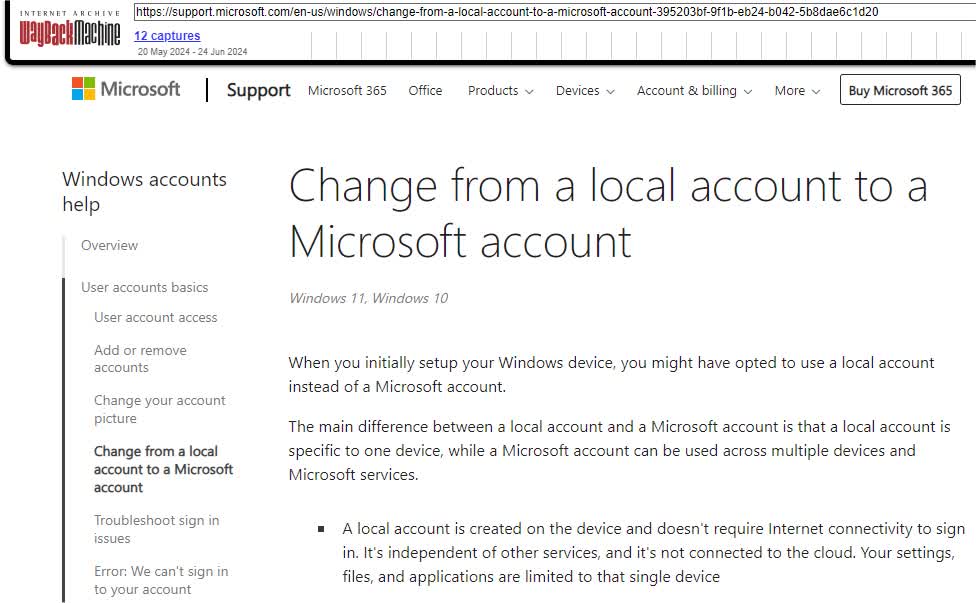Facepalm: Like Google, Apple, and other major online providers, Microsoft is willing to play dirty to keep users within its digital ecosystem. The Redmond corporation is now making it difficult for Windows 11 users by removing official instructions on how to convert an online account into a local one.

The Windows ecosystem was traditionally designed to treat users fairly, offering unprecedented openness and software backward compatibility that turned a "simple" OS into a major force in the technology and computing world. However, fairness, compatibility, and openness are now somewhat obsolete concepts, as Big Tech proactively harvest users' data to train AI algorithms, sell advertising, or improve their own products.
Microsoft has long tried to push PC users toward an online-only experience, making local account creation increasingly difficult, starting with the Windows installation process. Recently, the company modified the online guide related to Microsoft and local accounts, which now lacks any official instructions on converting a Microsoft account to a local one.
Thanks to the Internet Archive's Wayback Machine, the previous version of the guide can still be viewed as it was before the change. Microsoft provided detailed instructions on switching from a Microsoft account to a local account, although the company still recommended an online account for "seamless integration of Microsoft services," enhanced security capabilities, device synchronization, and more.
The newly revised guide now only provides instructions on switching from a local account to a Microsoft account, with the local account-focused section completely removed. Microsoft now claims that an online account offers several benefits over a local account, suggesting that users would be better off changing their previously created offline accounts to the "latest and greatest" computing experience provided by a Microsoft account.
A corporate-owned, online-only, cloud-tied account is now the standard requirement imposed by mobile platform owners such as Google (Android) and Apple (iOS), and Microsoft clearly wants to make Windows an exclusively cloud-oriented platform as well.
Even though Microsoft no longer provides official instructions, Windows 11 users can still change their online account to a local one whenever they wish. The "Your Info" page in the Windows Settings app should provide everything needed to make the change, at least until Microsoft decides to remove the feature altogether.
Microsoft attempts to steer Windows users away from local accounts
